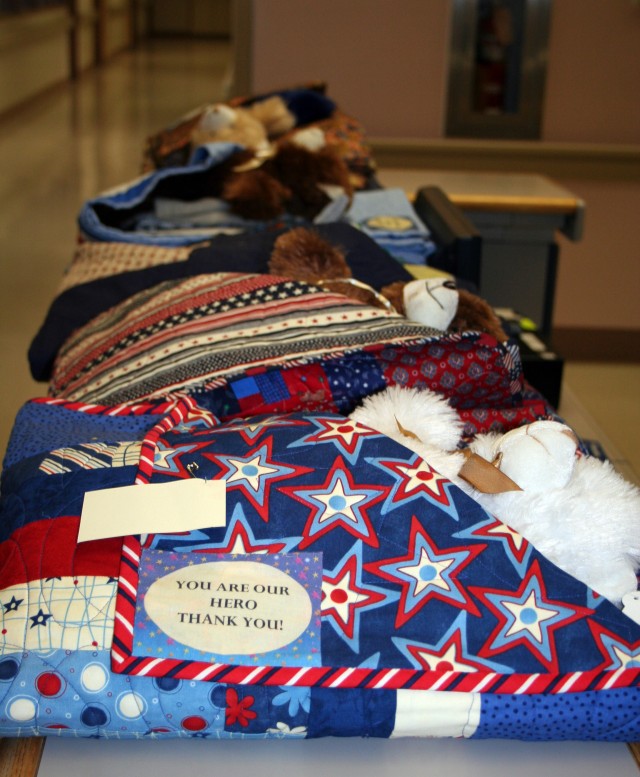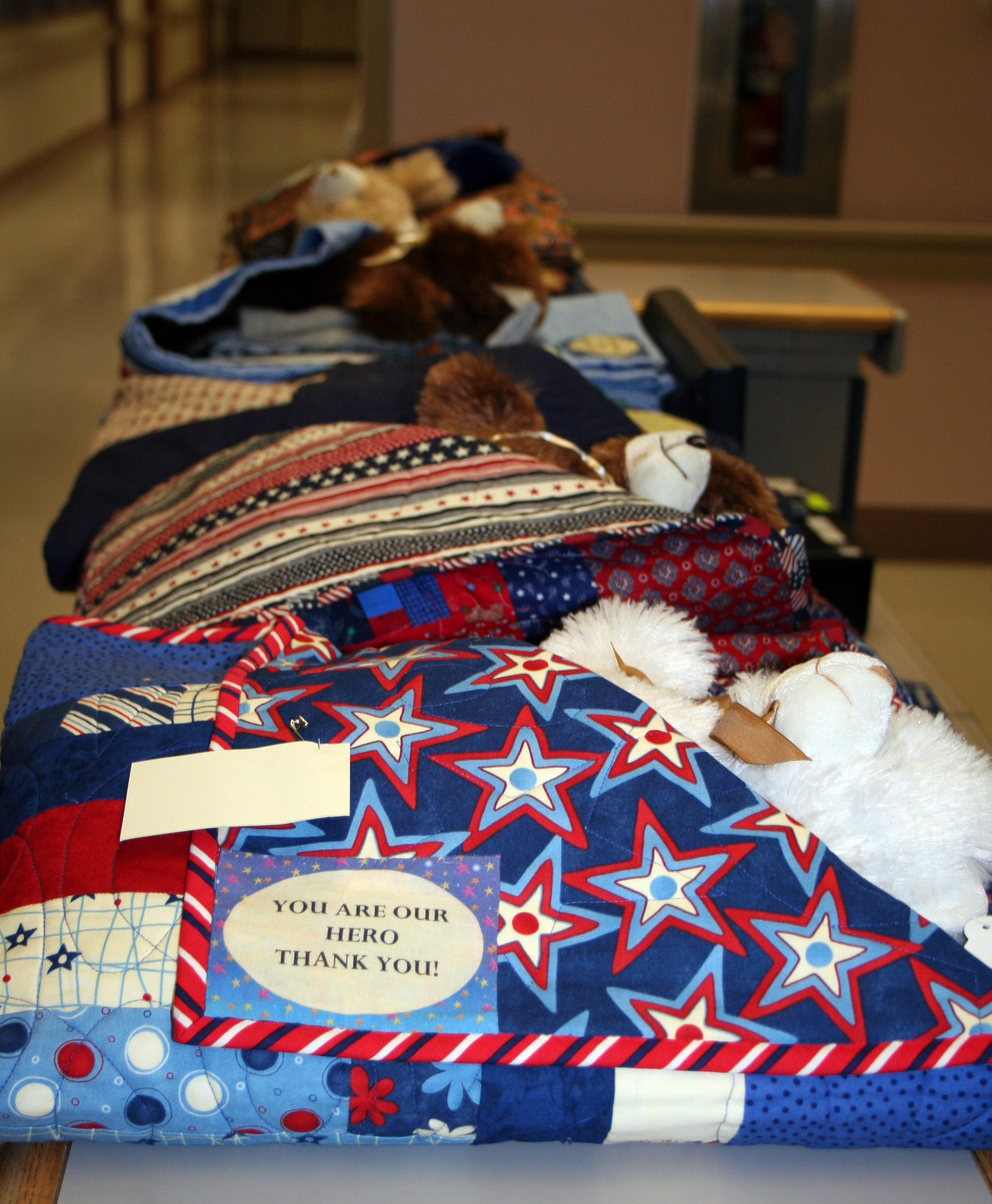The Strategic Communication Office is inundated with messages on a daily basis - e-mails for the Daily Bulletin, phone calls from the media and requests for tours of the hospital. I've always said what I love about my job is that my day is never the same. But there is one constant message from our wounded, ill and injured Soldiers - a message of thanks.
As the donations coordinator for Madigan Healthcare System, I see the generosity of the surrounding community and all of the support given to our Soldiers. About 60 percent of the donations we receive are designated by the donor for the Warrior Transition Battalion, and range from board games to running shoes to tickets to sporting events. The rest of the donations, mostly exquisite, handmade quilts, go to active duty Soldiers who are inpatients at Madigan.
I remember the very first quilt I gave to a Soldier at Madigan. The Soldier was young, a private, and he'd been in a motor vehicle accident. I wasn't prepared for what I saw when I first entered his hospital room. He was sleeping, but I could see through the gauze and bandages that his face was a network of cuts, scratches and bruises. He also had some broken bones. His mom was there, and I told her who I was and that I'd like to give her son a quilt for his service.
She immediately began to cry. She told me that he'd recently returned from a one-year deployment to Iraq, and he was a different kid than the one that had left her months earlier. He was moody, angry and was drinking heavily. He had decided to take his all-terrain vehicle for a ride after a drinking binge, and it landed him in the hospital. I sat and talked with his mom for a little while, and after about 15 minutes, his mom thanked me for the quilt and I left the room. A couple of days later, I saw his mom in the hallway near the dining facility, and asked how her son was doing. She said he was doing better, and he loved his quilt. Every so often, I thought about that Soldier and wondered where his life was taking him.
Another part of my job consists of taking a large amount of donations to the Warrior Transition Battalion and arranging an event called the Donor Depot. I lay all of the donations out on a couple of large tables, and Soldiers attached to the WTB are able to browse through the items and take what they need. A couple of months ago, I saw a Soldier at the event that I immediately recognized as that young private to whom I'd given that first quilt. I walked up to him and introduced myself. "You don't remember me," I said, "But you were in the hospital about a year and a half ago, and I gave you a quilt."
His response shocked me. "Oh my God," he said. "I'm so sorry you had to see me like that."
He started to tell me what had happened to him since that accident. He was being medically discharged from the Army in just a few days and his plan was to go to college. And he was sober. "Yeah, PTSD and alcohol don't mix," he said.
He said he appreciated the quilt so much that he's slept with it every night since I'd first given it to him. In fact, the night after he'd received the quilt, he said he'd gotten angry with a nurse because she had tried to remove the quilt from his bed. He was running a fever and she was trying to cool him down by removing some of his bedcovers.
He told me that quilt was exactly what he needed - a sign that someone cared. Other Soldiers I've spoken to have echoed this thought. The donations are such a morale booster, they say. When you're wounded, ill or injured, you're just trying to take care of yourself and trying to adjust to "not being a Soldier," as one of them put it, and that's hard when you've been a Soldier your whole life.
One Soldier I spoke with at the WTB had been deployed three times, but said, by today's standards, "that's not a lot. Most Soldiers do four or five deployments." But the donations help. "People we don't know are reaching out to us, but it's almost like someone close to your heart is thinking about you," he said.
This is what makes my job great. Seeing these Soldiers at their worst - some of them literally arriving to the WTB with just the clothes on their backs straight from the airport, sometimes with obvious injuries, sometimes with not-so-obvious injuries - but then running into them a few months later, and they're getting better and have a plan for their future. This doesn't happen to all of them.
But when you see it happen right in front of you, it gives you hope. And that is what the generosity of the community provides - for all of our Soldiers and for all of us who care about them.


Social Sharing